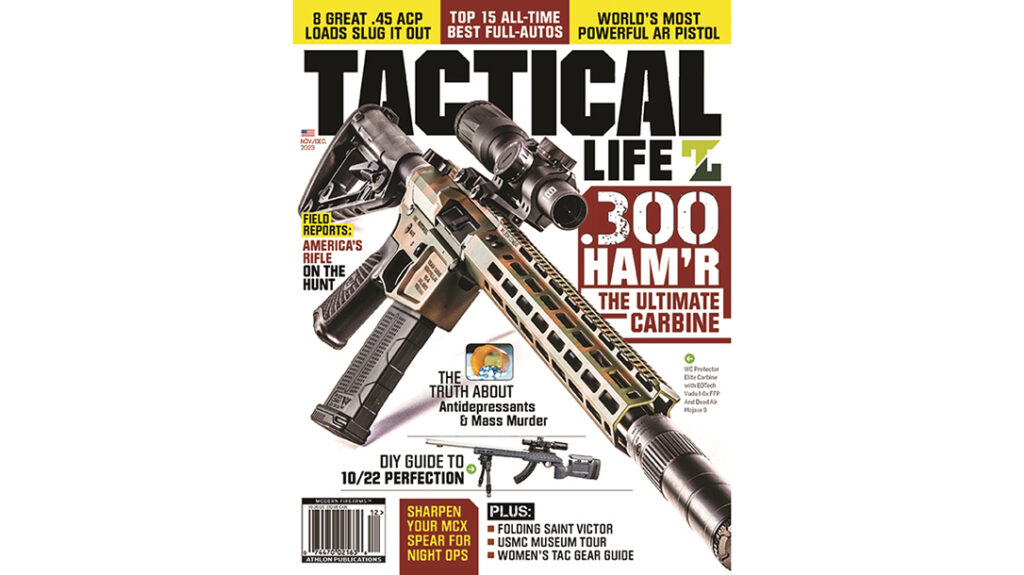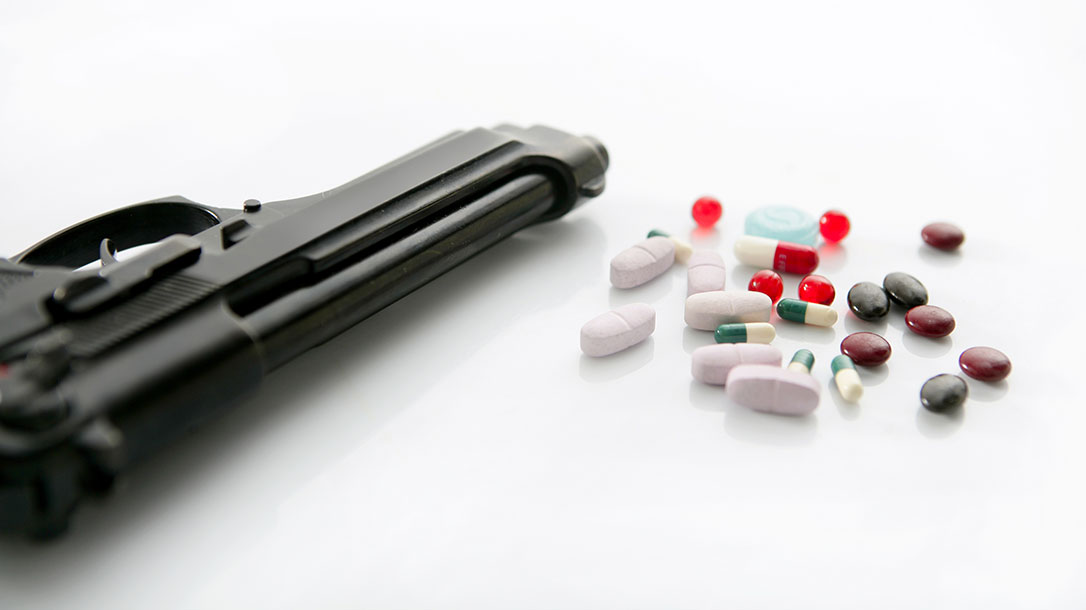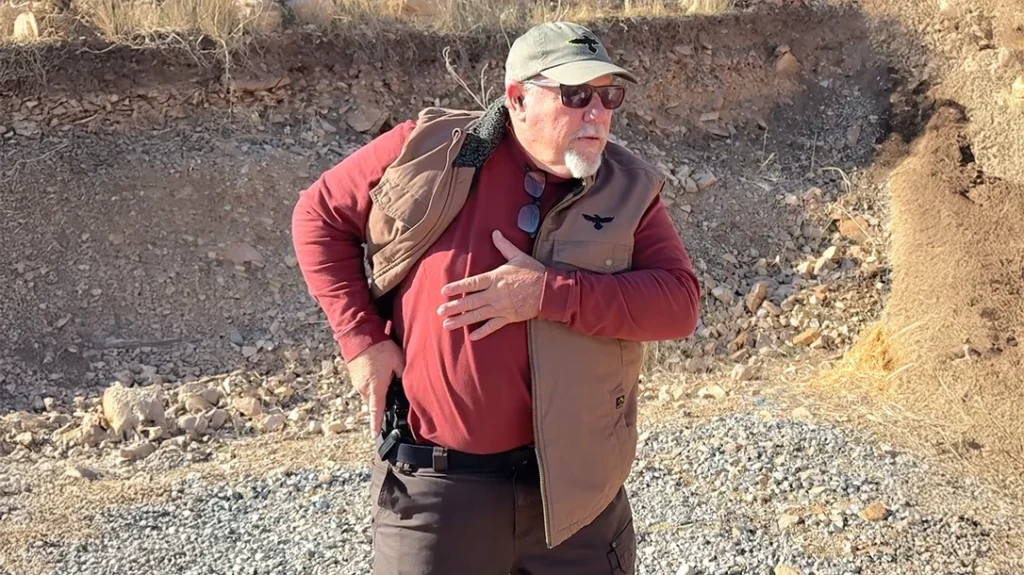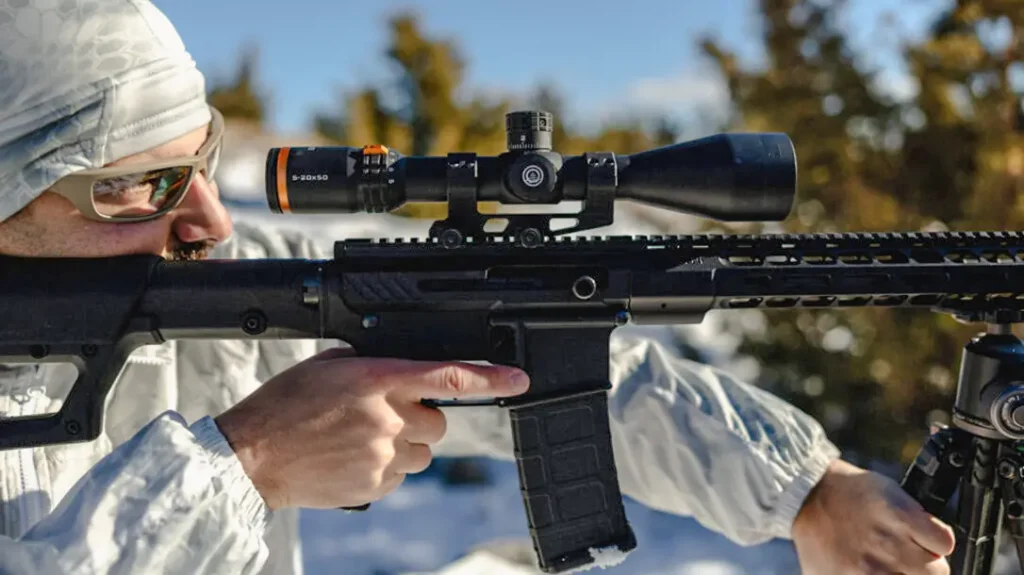Selective serotonin reuptake inhibitors, known as SSRIs, are the most frequently prescribed antidepressants on the market. Some users have reported the drugs alter their reality, making them emotionally numb. They talk of de-personalization (strange and unusual feelings as though you’re not really yourself) and de-realization (the feeling you’re watching rather than living your life). This behavior, brought on by these antidepressants, is a recipe for violent behavior like mass shootings.
Antidepressants and Altered Reality Leading to Mass Shootings?
Dr. David Healy, a distinguished psychiatrist from the UK, said as many as 90% of mass shooters were taking SSRIs before they committed their heinous crimes. He was quickly ridiculed and ultimately canceled for making this statement.
Peer-reviewed studies of the link between SSRIs and mass shootings are extremely rare, especially in the United States. Even though the frequency of mass murderers found to have taken SSRIs is a growing concern among mental health professionals.
Advertisement — Continue Reading Below
It is a delicate topic—a place where even well-meaning physicians fear to tread. Because, like Healy, it can cost them their careers. There are three powerful groups with vested interests who will crush anyone who says SSRIs might play a more significant role in mass shootings than we believed before.
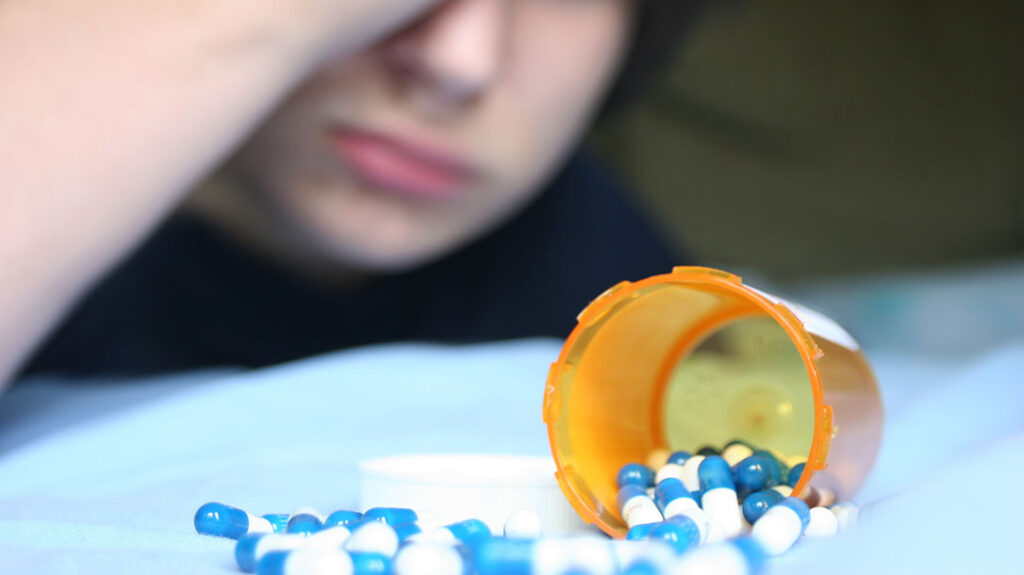
Cancelled
Healy is a professor of Psychiatry at Cardiff University in Wales, the former secretary of the British Association for Psychopharmacology, and has written more than 200 peer-reviewed articles and 20 books, including: “Let Them Eat Prozac: The Unhealthy Relationship Between the Pharmaceutical Industry and Depression” and “Pharmageddon.”
Advertisement — Continue Reading Below
According to his website, Healy “has been involved as an expert witness in homicide and suicide trials involving psychotropic drugs, and in bringing problems with these drugs to the attention of American and British regulators, as well raising awareness of how pharmaceutical companies sell drugs by marketing diseases and co-opting academic opinion-leaders, ghost-writing their articles.”
Healy claims that 1 in 100 people will become aggressive while taking antidepressants, which may lead to violence. Given the millions of people prescribed SSRIs, this is another bold statement.
“Violence and other potentially criminal behavior caused by prescription drugs are medicine’s best kept secret,” he has told the media.
Advertisement — Continue Reading Below
A 2005 story published by The New York Times chronicles the toll Healy’s outspokenness against Big Pharma has taken. This includes lost job opportunities and social ostracization.
“In some circles, his name has become so radioactive that it shuts down discussion altogether,” the story states.
“‘People have called it the Healy effect,’ said Dr. Jane Garland, chief of the Mood and Anxiety Disorders Clinic at British Columbia Children’s Hospital in Vancouver, who shares some of Dr. Healy’s concerns about drug risks. ‘If you even raise the same issues he does, you’re classified as being with David Healy, and that makes people very reluctant to talk. He has become very isolated.’”
Advertisement — Continue Reading Below
Professor Healy did not respond to multiple requests seeking his comments for this story.
RFK Jr. Says “Not The Guns”
Presidential candidate Robert F. Kennedy, Jr., has been pushing for more public awareness of the dangers SSRIs pose. Even to the detriment of his own political campaign. Kennedy is unapologetic and fierce on the topic. He’s demanding an investigation.
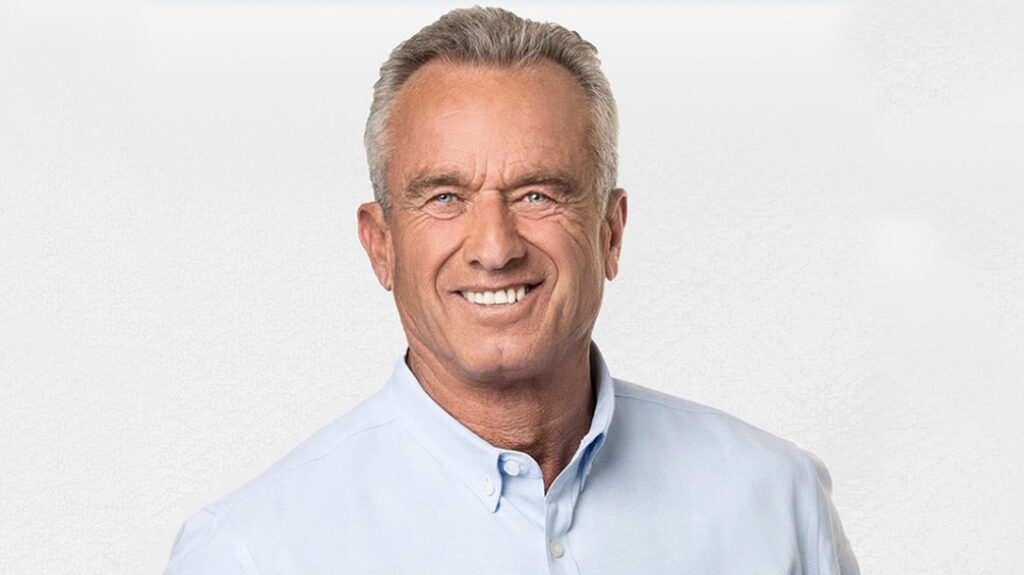
Advertisement — Continue Reading Below
“It’s not insane to say we should look at this. Something changed in our country,” Kennedy said during a recent interview on Twitter, now X.
He went on to say, “Something started this, and it’s not the guns because we’ve always had the guns. Something else happened, and we need to be looking, and that’s the function of NIH (National Institute of Health).
“This is the biggest health threat in our country, these shootings. NIH is supposed to be doing science that actually looks at the cause. The problem is that it doesn’t want to do anything that will offend the pharmaceutical industry. So, they will not even do a genuine study.”
Advertisement — Continue Reading Below
Kennedy pointed out that federal medical privacy laws shield mass shooters’ medical information from the public and the media.
“But NIH can get the information, but it won’t do it because it does not want to offend the pharmaceutical companies,” he said. “And we ought to at least be looking at that.”
Mainstream Media to the Rescue of Big Pharma and Antidepressants
As you can imagine, the mainstream media pounced. “RFK Jr. Blames Anti-Depressants for School Shootings,” screamed the headline in Rolling Stone. The New York Times described Kennedy’s views on SSRIs as one of his “5 Noteworthy Falsehoods.”
Advertisement — Continue Reading Below
Regardless of the mainstream media’s misquotes and out-of-context headlines, Kennedy remains undeterred.
“I said it should be looked at,” he told talk show host Bill Maher.
“There’s no time in American history or human history that kids were going to shoot schools and shooting their classmates,” Kennedy said in another interview.
Advertisement — Continue Reading Below
Members of Kennedy’s communications team promised to make the candidate available for an interview at a later date.
Collusion
Big Pharma makes billions from SSRI sales, and they spend billions to keep their profits flowing. Fearless journalist Tucker Carlson, who also knows a thing or two about being canceled, said the pharmaceutical industry spent more than $4.5 billion just on television advertising in 2020.
It’s not known how much Big Pharma spent on other media outlets, such as websites, magazines, and newspapers. [Visit youtube.com and search “Tucker Carlson SSRIs” to see his post-Uvalde, 5/25/22 show-opening monolog.]
Big Pharma’s largesse produces results, especially among print journalists at struggling newspapers, where underpaid reporters are willing to do whatever it takes to land another revenue source. There’s no better example than the politically motivated fact-less fact-checkers at USA Today.
In April 2023, for reasons known only to her, USA Today fact-checker Hannah Hudnall decided to fact-check an article published in December 2012. The article repeated Professor Healy’s claim that SSRIs were linked to 90% of school shootings.
Why Hudnall decided to fact-check an 11-year-old story unknown, other than that it appeared on a social media post. Perhaps she was only following orders.
Her story, of course, rated Healy’s claim as false. To prove her point, Hudnall turned to Dr. Ragy Girgis, an associate professor of clinical psychiatry at Columbia University and the lead researcher of a “2022 study of mass murderers.”
Dr. Girgis, of course, told the newspaper there was no link between SSRIs and mass shootings.
Unfortunately, Hudnall did not fact-check her source. If she had, she would have learned Dr. Girgis has his own biases, too.
Anti-Gunners’ Lies by Omission
The Everytown for Gun Safety Action Fund Inc. has $10,888,669 in assets, according to one nonprofit guide and monitor. Giffords has $9,121,826 in assets. Giffords Law Center to Prevent Gun Violence has $11,992,459. The Brady Campaign to Prevent Gun Violence has $3,042,585 in assets. Neither Giffords nor Everytown or Brady mention SSRIs on their websites—not even once.
Make no mistake, the gun ban industry is big business, too. And the possibility that there’s something other than guns responsible for mass shootings terrifies them. They’re solely focused on one goal—disarming the civilian populace. So, how can they justify total civilian disarmament if SSRIs contribute to violent crime? It’s heresy, they’d say.
In his 2022 Study of mass murders, Dr. Girgis cited “research” from several anti-gun groups. He used a study from Everytown for Gun Safety, another from The Violence Project, and a database created by The Gun Violence Archive, or GVA.
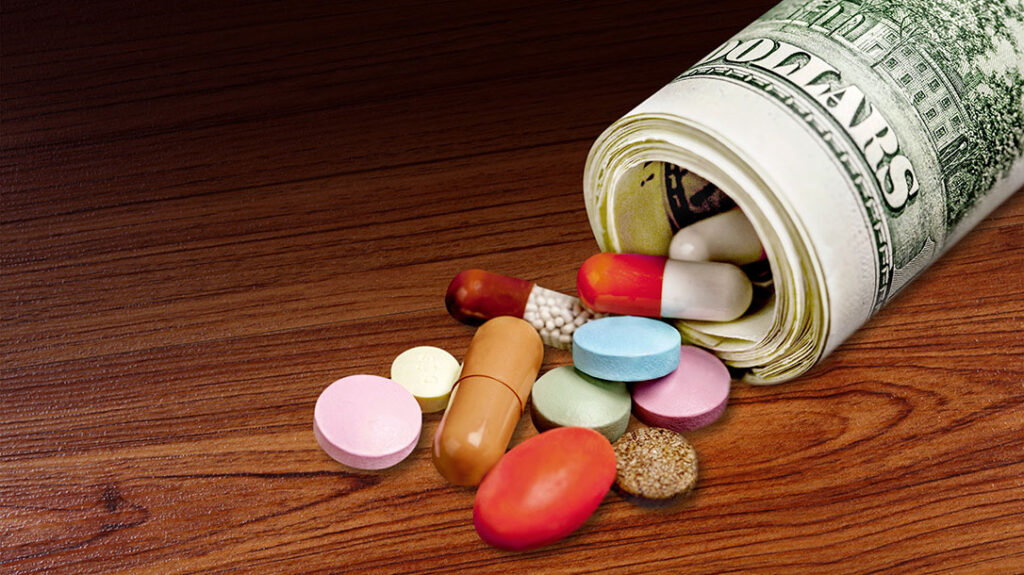
The GVA is a small but influential anti-gun nonprofit, which was debunked years ago. Anytime four or more people are killed or even slightly wounded with a firearm, the GVA labels it a mass shooting, and politicians, gun-control advocates, and the mainstream media treat their reports as if they’re gospel.
According to GVA’s all-inclusive definition, there were 417 mass shootings in 2019. The FBI says there were 30 because it uses a much narrower and more realistic definition.
Armed with anti-gun data, Dr. Girgis concluded in his report that policies focusing on mental illness would have limited impact. Instead, he found that policies focused on limiting access to firearms would produce more substantial results.
Takeaways
The one thing the gun-ban industry, Big Pharma, and their lapdogs in the captured mainstream media will accomplish is to cancel any study or public conversation about SSRI and mass shootings. This troika of special interests has the motive and the money to keep the issue dormant and shielded from scrutiny. Even though millions of people take SSRIs, and SSRIs may contribute to murder.
Is there any topic more in need of research?
One obvious takeaway remains. Until there are nonbiased studies of the link between SSRIs and mass shootings, any potential solutions will have to wait. While correlation certainly does not mean causation, lately, we’re seeing far too much correlation—very deadly correlation.
Editors’ Note
For more immersive details on all SSRI-class drugs, as well as real-world stories that can hopefully raise awareness and prevent future deaths, please visit SSRIStories.org.
The evidence is there, but no one seems to care:
- As Eric Harris stalked the hallways and library of Columbine High School on April 20, 1999, the antidepressant Luvox (fluvoxamine) was coursing through his veins. The drug and its side effects have been linked to violence. Harris and Dylan Klebold murdered 12 students and one teacher and wounded 21 more before committing suicide.
- An autopsy found that Las Vegas shooter Stephen Paddock, who murdered 58 people at a country music concert on October 1, 2017, had taken Oxazepam, Temazepam and Nordiazepam.
- James Holmes, the 24-year-old who murdered 12 people and wounded dozens more in a movie theater in Aurora, Colorado on July 20, 2012, had been taking Zoloft. One psychiatrist who interviewed Holmes before his trial told the BBC, “I believe if he hadn’t taken the (antidepressant) Sertraline, he wouldn’t have murdered anyone.”
- In 1988, Donald Schell shot his wife, daughter and nine-month-old granddaughter in the head before taking his own life. Schell had been taking Prozac, but another doctor prescribed Paxil for anxiety two days before the murders. Schell had no history of violence. In 2001, a Wyoming jury awarded Schell’s relatives $8 million, after finding that the drug “can cause some people to become homicidal and/or suicidal.”
This article originally appeared in the November/December 2023 issue of Tactical Life magazine. Get your copy today at OutdoorGroupStore.com.
